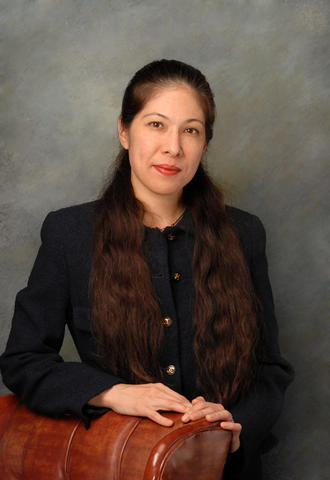Keynote Address for 2013 York Christian Apocrypha Symposium: Annette Yoshiko Reed
The keynote address for this year's York Christian Apocrypha Symposium takes place Friday, September 27 from 8 to 9:30pm. As with all other sessions at the Symposium, the address will take place in the Renaissance Room at Vanier College. There is no charge to attend the keynote address and all are welcome to attend. If you wish to participate further in the Symposium, there is still time to register (by email only). For information see the Symposium's web page (HERE).
 Annette Yoshiko Reed, "The Afterlives of Christian Apocrypha”
Annette Yoshiko Reed, "The Afterlives of Christian Apocrypha”
Annette Yoshiko Reed (BA McGill; MTS Harvard; MA, PhD Princeton University) is M. Mark and Esther K. Watkins Assistant Professor in the Humanities at the University of Pennsylvania, where she teaches in the Department of Religious Studies, Program in Jewish Studies, and Graduate Group in Ancient History. Her research crosses and connects Second Temple Judaism, early Christianity, and Late Antiquity. Her publications include Fallen Angels and the History of Judaism and Christianity (2005) and over forty articles, as well as four edited volumes—most recently, Jews, Christians, and the Roman Empire (2013).
At the center of Reed's research are so-called “Old Testament Pseudepigrapha” and “Christian Apocrypha”—writings which are non-canonical in the modern West but which were often influential in premodern cultures, especially in shaping ideas about the biblical past. She has attempted to understand these texts both by analyzing their redacted forms and by tracing their reception, translation, and reinterpretation by later readers. Her studies of 1 Enoch and Jubilees, for instance, shed light upon Judaism in the late Second Temple period (ca. 332 BCE to 70 CE), while also revealing the rich afterlives of Second Temple texts and traditions within and between Christian and Jewish communities in Late Antiquity. Likewise, her studies of the Testament of Abraham and Pseudo-Clementine Homilies and Recognitions follow the interests of the redacted forms of these texts, taking seriously their resistance to tidy categorization as either “Jewish” or “Christian,” as well as their resultant potential to reveal overlooked dynamics of identity-formation in the Roman Near East.
In the process, her research has sought to illumine pivotal moments in the re-imagining of the biblical past—from the dawn of parabiblical literary production among Jews in the early Hellenistic age (third to second centuries BCE), to the reorganization of Jewish and Christian knowledge about the past after the failures of the Jewish revolts against Rome (late first to second centuries CE), to the competing consolidations of histories and counter-histories concurrent with the Christianization of the Roman Empire and the increasing Rabbinization of Palestinian Jewish society (fourth century CE and following). Most recently, she has shown how attention to these premodern processes helps to historicize the contestation over the past in modern times as well—not least due to the pivotal place of “pseudepigrapha” and “apocrypha” in the construction of current notions of “the Bible.”
Presentation Abstract
“Do ancient Christian Apocrypha have any contemporary relevance? Most debate on this question has centered on the possibility that noncanonical gospels might preserve early or suppressed traditions about Jesus, his apostles, and the very origins of Christianity. This talk approaches the issue from a different direction, considering how apocryphal texts and tropes live on in contemporary fiction, television, and film in North America and beyond. Attention to the unexpected afterlives of ancient apocrypha, in turn, leads to notice new elements of their influence on art and literature in Late Antiquity and the Middle Ages as well, revealing elements of their significance for Western culture beyond their value for the historical questions of Christian Origins.”
